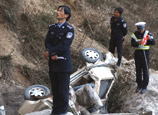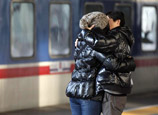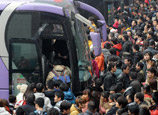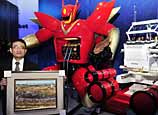
 |
| Li Tian, a ticket seller at Beijing Railway Station. (Photo/China Daily) |
While millions of people take to the roads each day for Spring Festival family reunions, Li Tian is going to miss his fifth Lunar New Year's Eve dinner with his family on Saturday.
Since he started working at Beijing Railway Station in 2008, the 28-year-old ticket seller hasn't taken a work day off, except for his one-week honeymoon to Hong Kong.
"I have got used to spending the Spring Festival Eve in the ticket-selling hall," Li said.
Although the hall is less crowded now, with travelers able to book tickets online or by phone, ticket sellers still cannot get away for the weeklong Spring Festival holiday.
"As long as there are people coming for tickets, every ticket seller must be ready at the counter," Li said.
More than 40 ticket sellers will be on duty during the 40-day Spring Festival travel rush, which began in late January.
But Li began to get really busy one month earlier.
Since late December, he has left for work at about 6:30 am every day, never finishing before 9 pm. During this time, he gets a 20-minute meal break at about 10:30 am. He strictly limits drinking water to avoid going to the toilet during work.
He spends his work time in front of a computer or solving passengers' problems.
Life hasn't changed much at the ticket counter for Li even with the launch of new booking services. But the situation on the other side of the counter has changed dramatically, from being overcrowded to fewer than 10 people queuing for tickets.
According to the Ministry of Railways, about 40 percent of tickets were bought online or by telephone in January.
"The number of people lining up for tickets is much smaller, while more are coming for ticket refunds," Li said, adding that the number of refund counters has been increased to about 12 from the original six.
As one of the busiest stations in the country, Beijing Railway Station expects to see more than 150,000 passengers on and off trains every day from Saturday, Xie Jingyi, the station's press official, said.
Nearly 4 million passengers will use trains at the station during the Spring Festival travel rush, about 30 percent more than last year, Xie said.
The travel rush lasts from Jan 26 to March 6, with about 220 million passengers expected to take trains nationwide, a year-on-year increase of 4.6 percent, according to the Ministry of Railways.
China launched an online ticketing system and ticketing hotlines in late 2011 to avoid long lines for tickets at stations.
















 Moments that melt your heart during the Spring Festival travel rush
Moments that melt your heart during the Spring Festival travel rush


![]()
